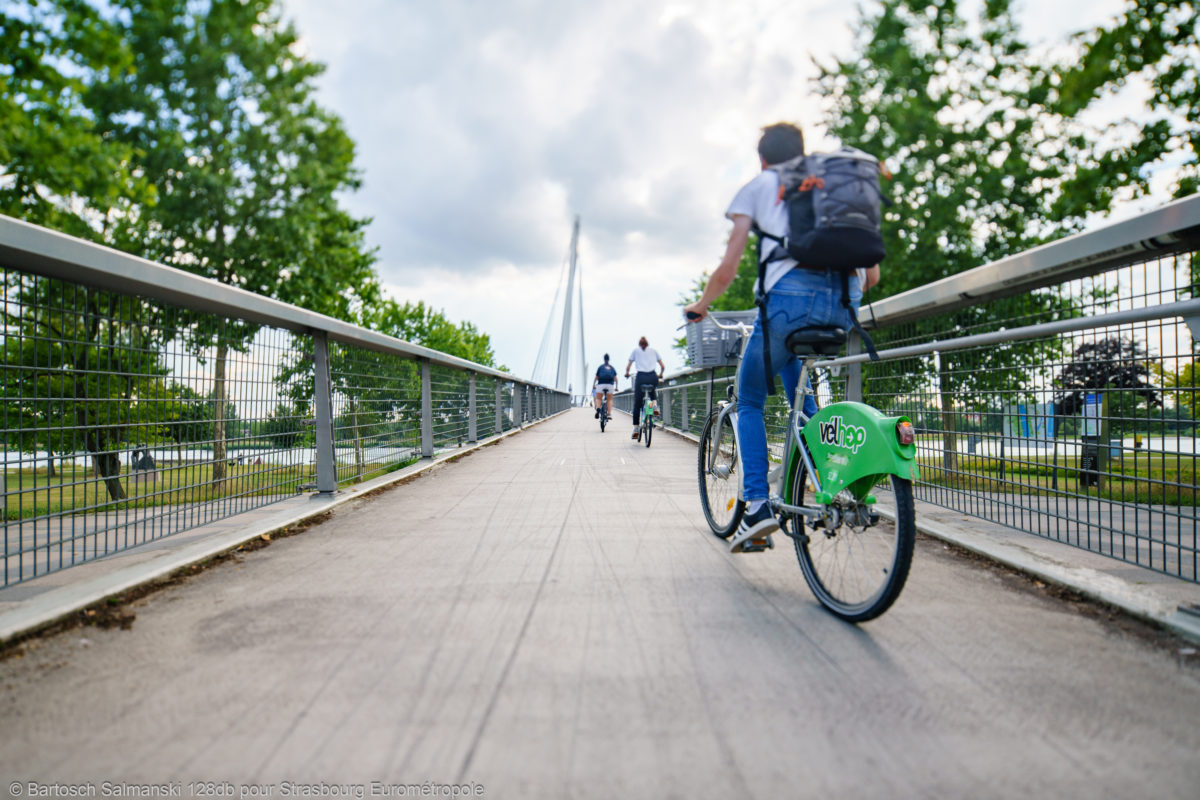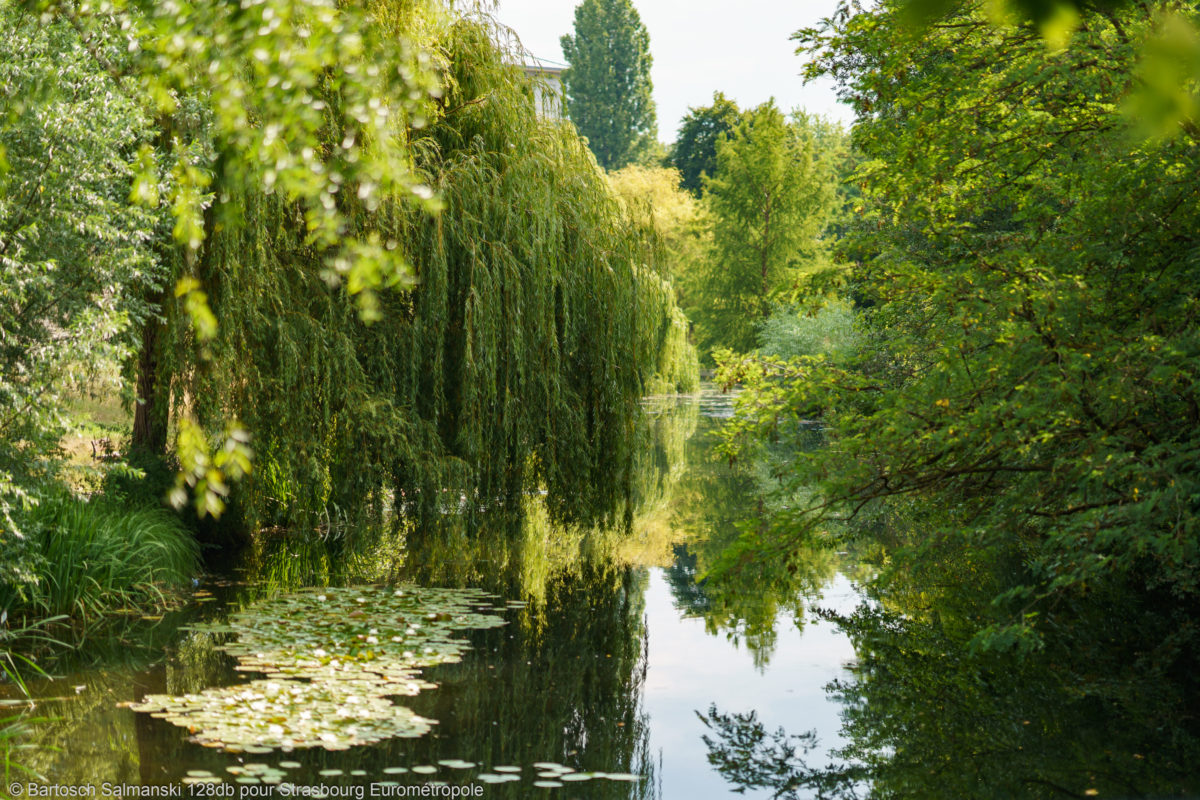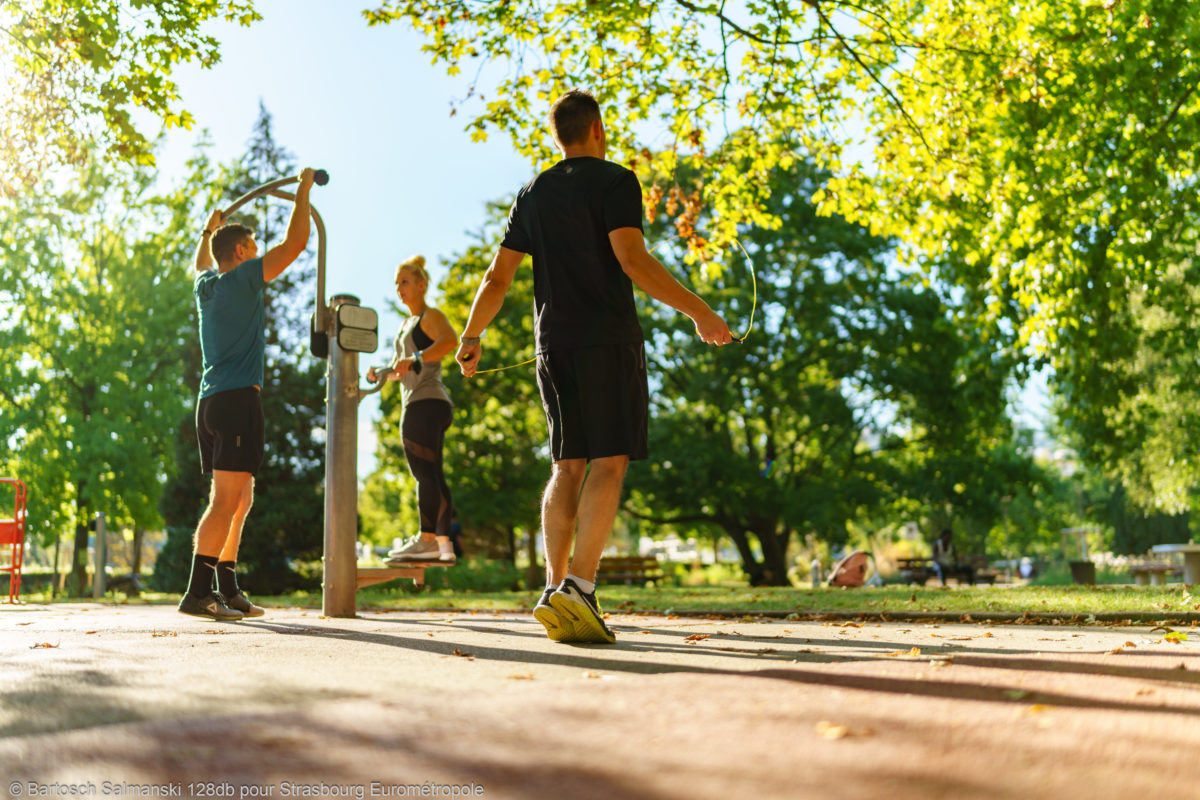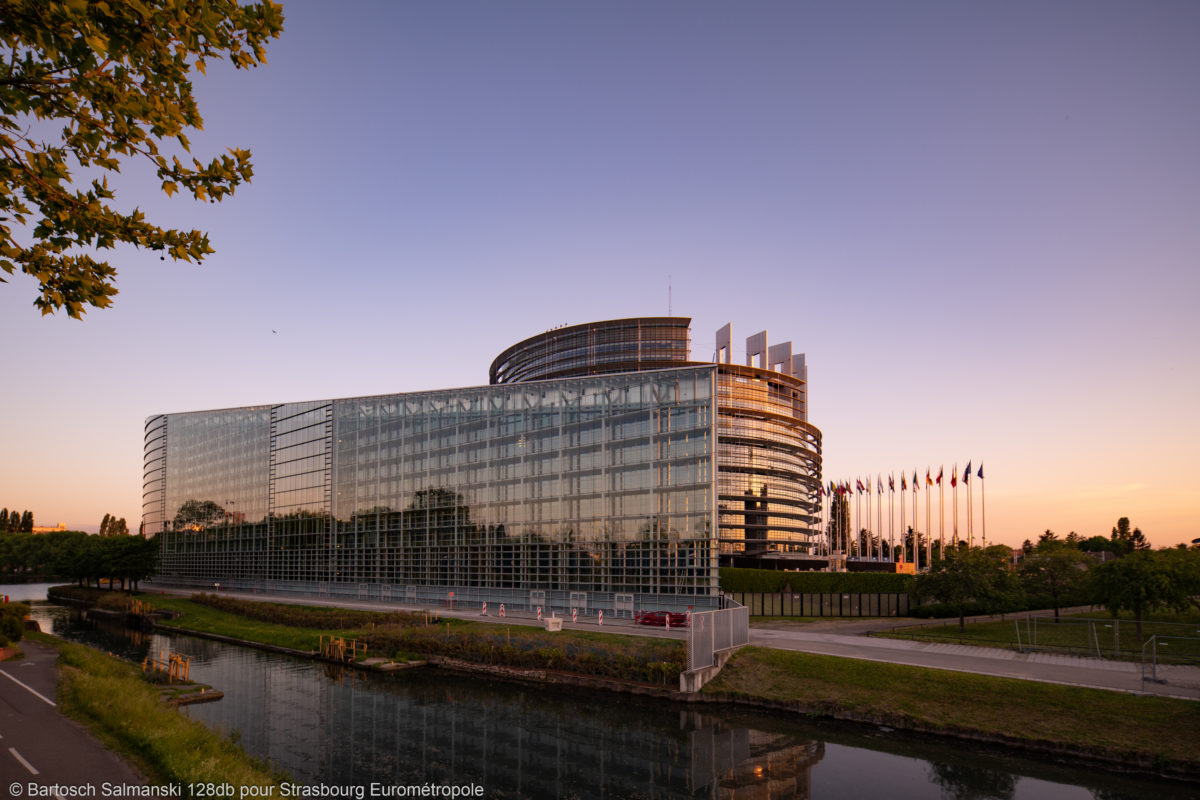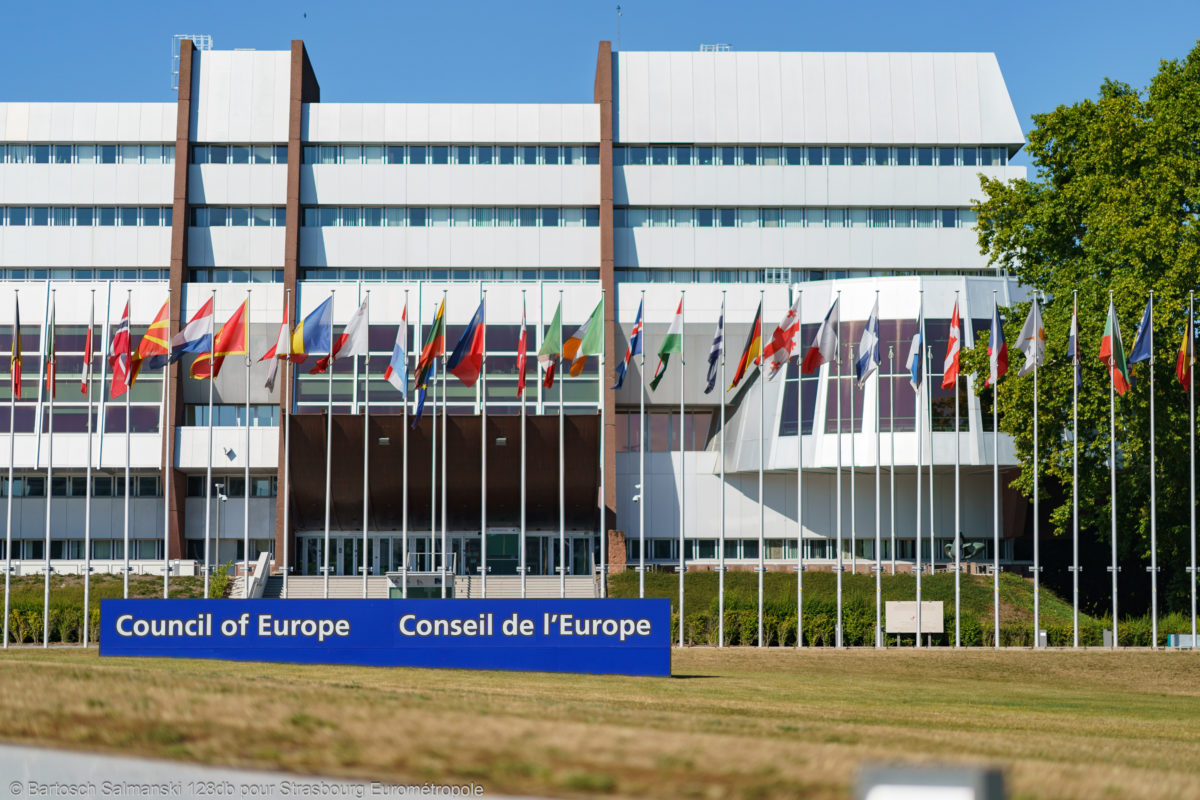Strasbourg is a city with a strong personality, an optimists’ city. It’s a green metropolis, with a firm European and international outlook, dynamic and humane with the values that reflect its outstanding quality of life. In addition to its many greens and parks, its extensive network of cycle tracks, its historic city centre and magnificent cathedral, its half-beam houses, its vibrant cultural festival scene, its many talents and its university, what stands out when you travel through the Eurometropolis of Strasbourg and its 33 municipalities is the enthusiasm written on the faces of those who drive the city’s heartbeat.
Opting to live in Strasbourg means living in a city which has found the right balance, where local life sits comfortably alongside Europe, jobs with nature, well-being with mobilities, the environment with culture and heritage with innovation.
Entrepreneurs, students, researchers, artisans, sportsmen and women, optimists from all over the world – you’ll find a warm welcome, here in the European capital!
Strasbourg, a city with its own peace of mind
Strasbourg’s a great city for walking or cycling around – its pedestrianised streets are abuzz with different accidents and different languages, at a time when many cities are struggling to make themselves heard above the noise of their streets. Its inhabitants appreciate its human dimension, underpinned by its convictions and values. There’s nothing easier than meeting friends in the city’s markets (over 20 of them!) full of local produce, in one of the many cafés or out walking along the banks of the river Ill. Strasbourg offers a quality of life which makes people glad to be there.
In Strasbourg, a district = a way of living
Each of the city’s districts has its own distinct character and features, and you’re sure to find one that’ll suit you down to the ground.
If you fancy the bustle of the city, then it’s the city centre, but if you’re a student or have a taste for nightlife, then the Krutenau might well be the best. For a family atmosphere with a touch of the bohemian, try Neudorf , while if you want to be close to nature, go for the Robertsau.
The districts illustrate the city’s dynamism, while property prices remain reasonable, with an average of €2870 per m² for existing apartments.
Your district will have its own neighbourhood associations, sports clubs, nurseries, schools, shops, cultural events, greens and parks, while every part of the city is lively, vibrant and inspiring!
One thing’s for sure, you won’t be able to resist the call of the city’s two UNESCO World Heritage sites (Grande-Île and Neustadt) and you’ll soon find yourself going through the daily ritual of gazing up admiringly at the Cathedral!

« It was a nice surprise to see how big the apartments are, there’s much more room than in Nice. »
In and around Strasbourg
Living in one of the Eurometropolis’ 33 municipalities, all just a short hop from the city proper, can be the ideal choice for families with children or for people enjoying a well-deserved retirement.
The top-ranked cycle-friendly city in France and 4th-ranked worldwide (Copenhagenize rankings)
ha of green spaces
cultural events every year
How about you, are you a cycloptimist?
86% of people living in Strasbourg readily recommend the city, stressing the efficiency of the public transport system. The city’s proactive focus on green and sustainable transport ties in with the desire for an excellent quality of life and has been a key part of the city’s development strategy since the late 1980s. Strasbourg’s 77 km tram network changed the shape of the city, and has resulted in an enhanced bus system, the growth of car sharing (Citiz) and the development of cycling. The city centre is largely car free and Strasbourg is a testbed for innovative mobilities and a champion of green transport. Strasbourg is the 4th most bike-friendly city in the world, with over 660 km of cycle tracks and the bike has become a new way of living, for doing the shopping, going to work (16% of its inhabitants use the bike for commuting), taking the kids to school and even for delivering goods to houses or businesses (using cargo bikes, which can also be hired from a number of outlets in the city).
Source : 1 2022 figure: www.hellowork.com
Source : 2 www.lefigaro.fr/emploi
Strasbourg is a pioneer in soft mobilities
Intermodal transport is a way of life… Inter what? Intermodal transport means a journey where you can switch between different forms of transport, even when you’re using a bike. The city’s transport system, with 8 tram lines (including 2 bus rapid transport lines) 36 bus lines and a range of incentives for encouraging inhabitants and tourists to use public transport, cycle or walk, is designed to encourage intermodal transport. To give an example, the PassMobilité card means you can switch from bus to a tram without breaking your journey, while the bus rapid transport line from the train station (with its TGV high-speed train connections) takes passengers directly to the European Parliament, illustrating the City and Eurometropolis’ efforts to offer credible alternatives to the automobile.
Getting out and around in Alsace is easy
Just take a train from Strasbourg’s city-centre station and you’ll soon find yourself in the countryside, on the famous wine route, in the magnificent scenery of the Vosges mountains, or over the Rhine in the Black Forest in Germany. Basel and the spectacular scenery of Switzerland are also just short ride away. Skiing, hiking, mountain biking, wandering in the vineyards – they’re all near and they’re easy to get to!
And if you’re looking for thrills, Europa Park, voted the world’s best leisure park for the 6th year in succession in 2019, is just over 50 km away, in Rust in Germany.
Flying out of Strasbourg
Strasbourg’s international airport is just 8 minutes away (there’s a train shuttle every 15 minutes) and offers connections to over 40 destinations.
Breathing in nature
One of the greatest attractions of the Eurometropolis of Strasbourg is its quality of life. Nature is an essential part of the city, with the urban vegetation programme, allotments, the Zero Pesticide scheme, neighbourhood composting and urban farms right next to the city centre. With 344 ha of parks and gardens and 3 national nature reserves, Strasbourg offers 162 m² of green spaces for each of its citizens! Strasbourg’s ambition is to become a green European capital by 2050, by fulfilling the aims of an energy-independent city. As the 3rd-ranked Green city in France, it’s certainly got off to a great start!
Consuming better, consuming locally
Strasbourg’s dual focus on tradition and modernity helps its citizens reconnect with the authentic spirit of our region, by encouraging the use of short supply chains and by supporting new production methods. In 2010, for example, it teamed up with the Chamber of Agriculture to encourage a more virtuous method of consumption, highlighting alternatives to the restrictions and excesses of mass consumption. With small producers organising drive-ins and collective deliveries, farm shops, AMAP direct sale outlets, fruit and vegetable boxes, therer’s now a huge choice in and around the city of outstanding produce to be bought locally. Examples in the city include Le Jardin de Marthe (Robertsau), l’Îlot de la Meinau (just outside the city centre) and the Jardins de la Montagne Verte, which show that it’s no great problem growing things even when you live in the city!
And come December, the city’s famous Christmas market also features an entire village (the marché off, place Grimmeisen) where all the produce is locally sourced from committed, solidarity-based suppliers.
Alsatian culture: acting and living together
Choucroute has long been a symbol of regional cooking. This is no cliché, because if you look closer at it, a good choucroute, placed in the middle of the table, is a reflection of all the region’s warmth, sense of sharing and zest for life. The stammtisch tradition is a key part of Strasbourg social life. It means getting together round a table to chat, to exchange views and to enjoy each other’s company.
Strasbourg has a well-earned reputation for the excellence of its culture, with some 9000 events staged every year, reaching out to its inhabitants and taking culture outside the walls of the organisers.
Communal living in Strasbourg
The city showcases its many cultures through a rich, varied and committed cultural programme which reaches out to its inhabitants with open arms. New housing developments and urban projects are designed to encourage social interaction, while the renovation of the old Manufacture des Tabacs and the La Coop sites will pay tribute to the cooperative spirit which reverberates throughout the city, with homes, artists, businesses, local producers and restaurants grouped together.
To take advantage of this new way of communal living, why not join one of the city’s some 12,000 clubs and associations, which cover activities such as sports, ecology, solidarity, pets, music and many, many others.
NB: there are many outstanding restaurants in Strasbourg, and they don’t just serve choucroute! With dozens of new addresses opening every year, the city is a foodie paradise! We love choucroute and pretzels, but there’s a lot else here.
…
Strasbourg European capital living in the rhythm of Europe
Strasbourg wouldn’t be Strasbourg without Europe. The city is home to some 80 European and international institutions, including the European Parliament, and its humanist and universal vision is underpinned by the large number of major issues debated here. Strasbourg is also a centre for discussion of key social topics, such as human rights, gender equality and bioethics, topics which are enthusiastically embraced by its citizens. Local democracy is a fundamental part of the city’s life- and the local authority a firm supporter of more horizontal and bottom-up forms of governance, based on dialogue and co-construction.


